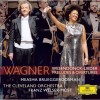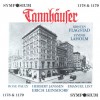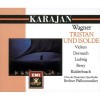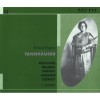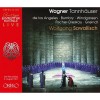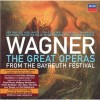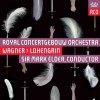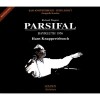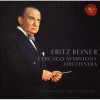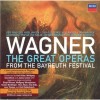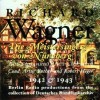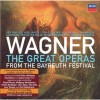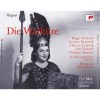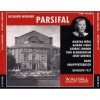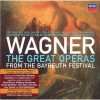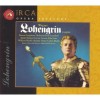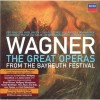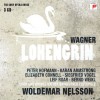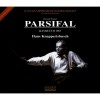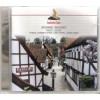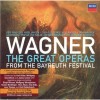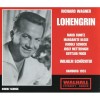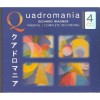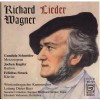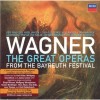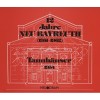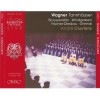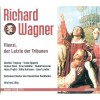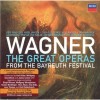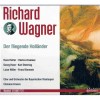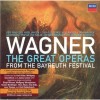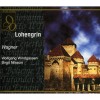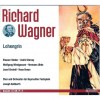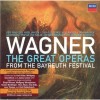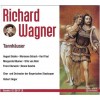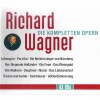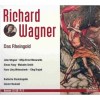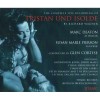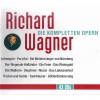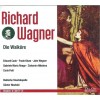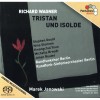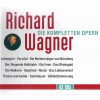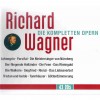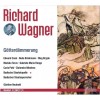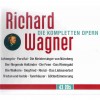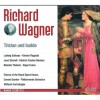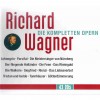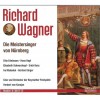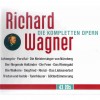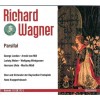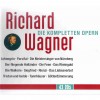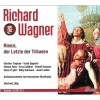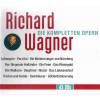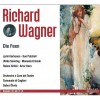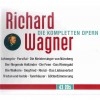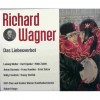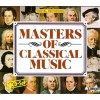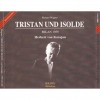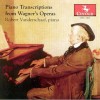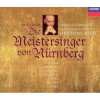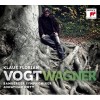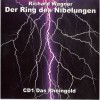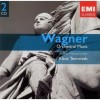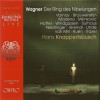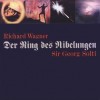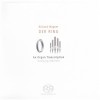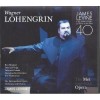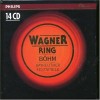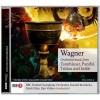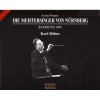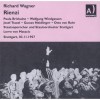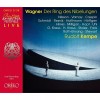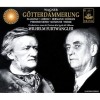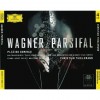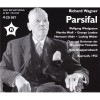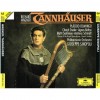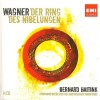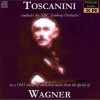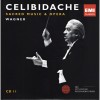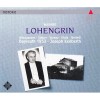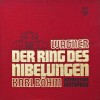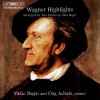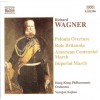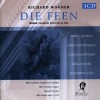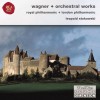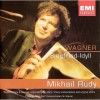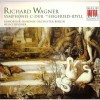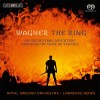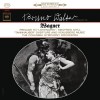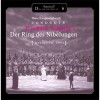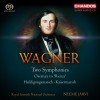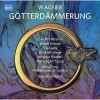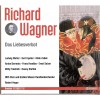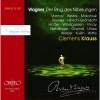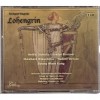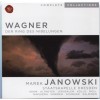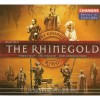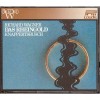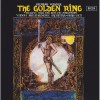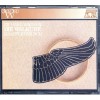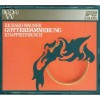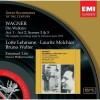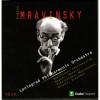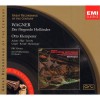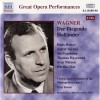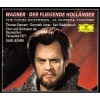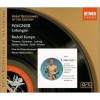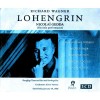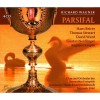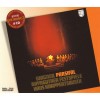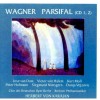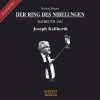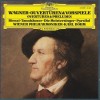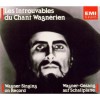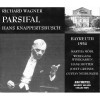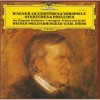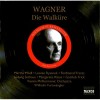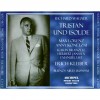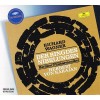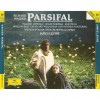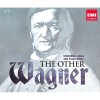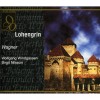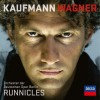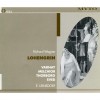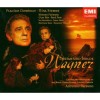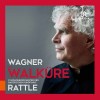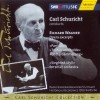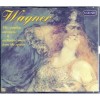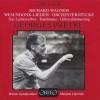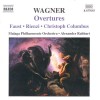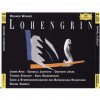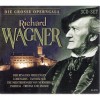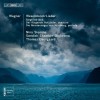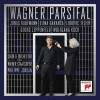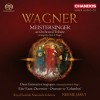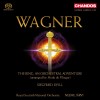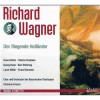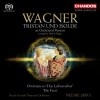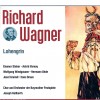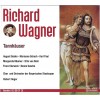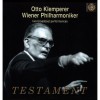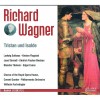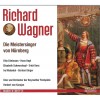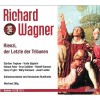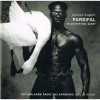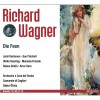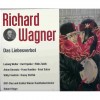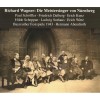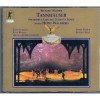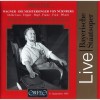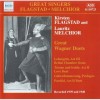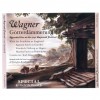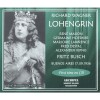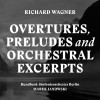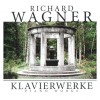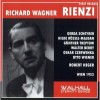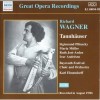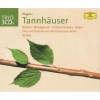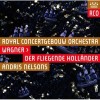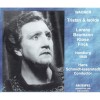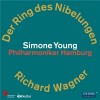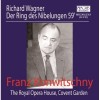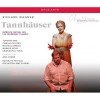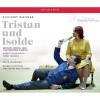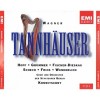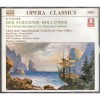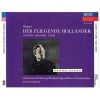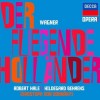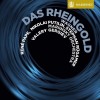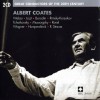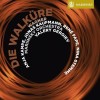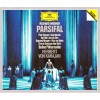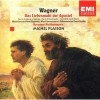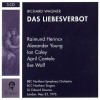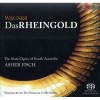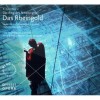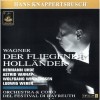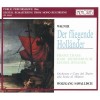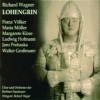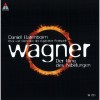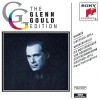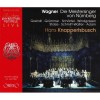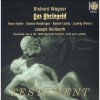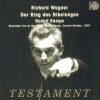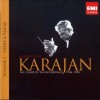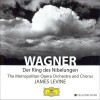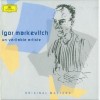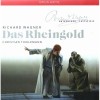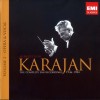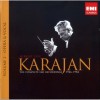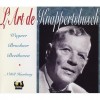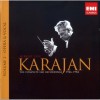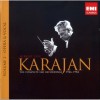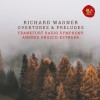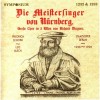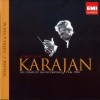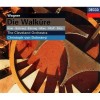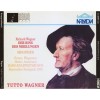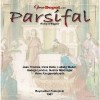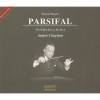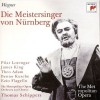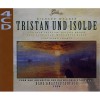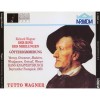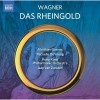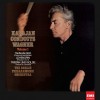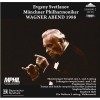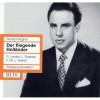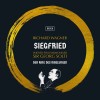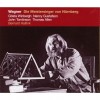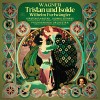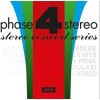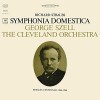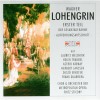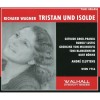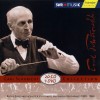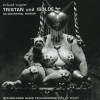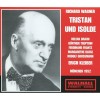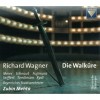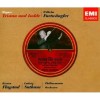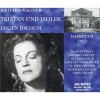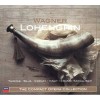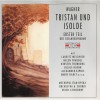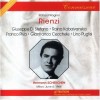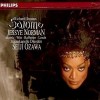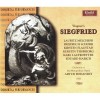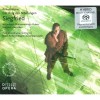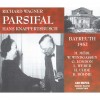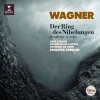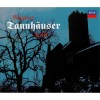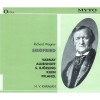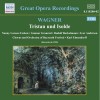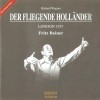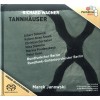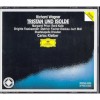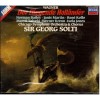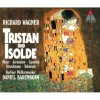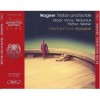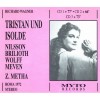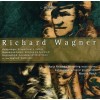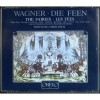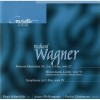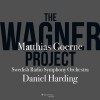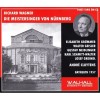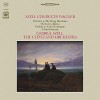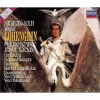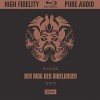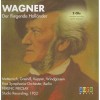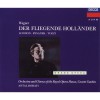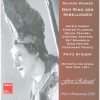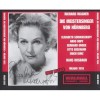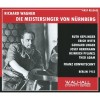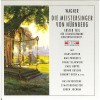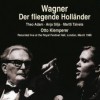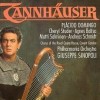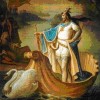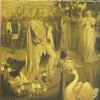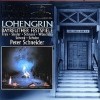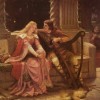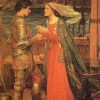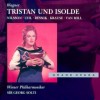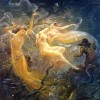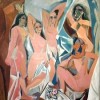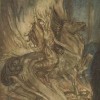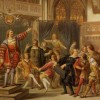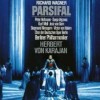Composers
The man, whose destiny was to become one of the world’s most renowned composers, was born on May 22, 1813. His hometown Leipzig was one of the most romantic places of Germany and later, being a grown up the composer would often refer to this place in his works. Richard’s father died of typhus several months after his son’s birth, and a year later in 1814 Wagner’s mother started a new marriage with the actor, named Ludwig Geyer. The latter brought the whole family to reside in Dresden where Geyer’s theatre was. And some hearsay, that Ludwig Geyer was actually the boy's father. What is more, he is reputed to be Jew, against whom Richard was strongly biased his whole life.
One way or another, thanks to Geyer from the early childhood Wagner was surrounded by the atmosphere of theatre, which influenced him immensely as a composer and a playwright. He even took part in one or two of his stepfather’s performances.
One can claim the opera Der Freischütz of Weber, staged in Dresden, to be one of Wagner’s strongest childhood impressions. But this was not what urged his ambitions to become a professional composer.
That was in 1820, when Wagner with his family returned to Leipzig, where Richard joined Pastor Wetzel's educational establishment. During his musical studies with the teacher the boy would play by ear rather than go by the book, he was not good at schedules of any kind. In 1821 Ludwig Geyer died, leaving his brother in charge of Richard’s future. Richard’s uncle payed for the Dresden Kreuz Grammar School, where the boy continued his studies at the age of 8. From now on Wagner cherished dreams of becoming a playwright. His creative efforts climaxed in the tragedy Leubald, which was initiated in 1826, and was written under the influence of William Shakespeare. Wagner was also obsessed by the idea of setting the tragedy to music. Therefore he asked his family for permission to take some music lessons.
Christian Gottlieb Müller was Wagner’s teacher in composition in 1828–31. By this time the family moved back to Leipzig, where Wagner became deeply moved by Beethoven's symphonies staged at Gewandhaus. Beethoven was Wagner’s major icon in this period of life, and he wrote several sonatas and overtures thus inspired by his idol.
In 1831 Wagner joined the University of Leipzig. By this time his musical practice was so occasional, and he was practically left to himself until eighteen year old Wagner met Theodor Weinlig, who became his tutor for a year. Theodor Weinlig was the cantor at the church of Saint Thomas. Wagner’s talent was a great revelation for the old man, and he even helped Wagner to publish his piano work.
The career of Richard Wagner started in 1833 in Würzburg. He worked as a choral director and a composer, taking after German romanticists, such as Beethoven and Weber. Especially Bethoven’s oeuvre was the hallmark of the real music quality for Richar. Romanticism in music was featured by putting stress on emotion and flexibility of form, and critics agree, that it reached its zenith in the works of Richard Wagner.
Die Feen (The Fairies), his first opera was written in 1833, when Wagner was only 20 years of age. Once it was finished he worked zealously to get it staged. But as soon as his efforts failed Wagner moved on to his next work. Only five years after the composer’s death passed as it was first mounted in Munich with great success. Critics say that Wagner was not of very high opinion of this work in later life. In 1865 he even handed over the only copy of the manuscript to Ludwig II for Christmas, what means that he never wanted to resume his efforts to stage it.
From 1834 to 1836, Richard Wagner was music director in one of Magdeburg theatres. Das Liebesverbot (The Ban on Love), the opera in two acts, with the libretto was written by the composer after Measure for Measure by William Shakespeare. The so called “grosse komische Oper” was composed in 1834. Wagner arranged it to be staged at Magdeburg in 1836.
The performance turned out to be a real flop, enjoyed very poor success with the audience, and a singer who always forgot words and constantly improvised. Other performances had to be recalled after a blow-out between a leading tenor and an insulted husband of a prima donna.
At this time the composer experienced some grave financial difficulties, this state of affairs was though not new for him.
By this time he had met a provincial singer-actress named Christine Wilhelmine "Minna" Planer, whom he would later marry. After his fiasco in Magdeburg and with no clear prospects, Wagner left the place and followed the actress to Könnigsberg, where young Mina had been offered a place at the local theater. Richard Wagner and Minna Planer got married on November 24, 1836. Their marriage was a stormy one from the very beginning, but they would remain together for twenty more years. Soon Wagner became a music director in one of the theatres of Könnigsberg.
Between 1837 and 1839 Richard Wagner occupied the post of music director in the theater of Riga. Here the composer experienced some dramatic events in his personal life. His spouse plunged into a short love-affair with an officer, who then left her disgraced and with no means of her own. Minna then returned to Wagner, who in spite of everything agreed to take her back.
Enormous debts made by the Wagners made the couple flee Riga in 1839. During their escapade from creditors to London they even experienced a stormy night at sea, which is said to inspire Wagner to write his famous Flying Dutchman. Although, most people believe Heinrich Heine’s works to be the true source of inspiration.
The composer then headed for Paris, the city with rich cultural life. Here Wagner hoped to restore his finances and gain social acknowledgement. Here he earned his living writing short articles and staging the works by different composers. There and then Wagner developed strong biased relation to French theatrical traditions and French culture, a feeling which he could neither suppress, nor overcome. Although, this did not influence his willingness to gain success in Paris by all means. Being in low water, Wagner had to sell the scenario for his distinguished Der fliegende Holländer. Though it was not the only copy of this masterpiece. Afterwards the composer produced another variation on the old topic.
Rienzi, der Letzte der Tribunen (WWV 49) (Rienzi, the Last of the Tribunes) the opera in imitation of the French style in five acts was also written in this period. Produced between 1838 and 1840, the opera was first performed in Dresden in 1842.
Richard Wagner suffered as he could not achieve the desired success. In 1842 he returned to Dresden to reside for several years. The premiere of his Tannhäuser, performed in Dresden in 1845, turned out to be his first real success as a composer. During this period he fostered the idea of the famous Der Ring des Nibelungen under the influence of Norse sagas. Siegfried's Tod, later renamed as Die Götterdämmerung was the first part of the tetralogy.
Richard Wagner’s devotion to the left movement and its ideas made him an outcast for protectors of the old regime. The call for reunion of all German lands so ardently supported by Wagner was not supported by ruling classes and in the long run brutally suppressed.
In 1849 the composer had to abandon Dresden. He resided in Switzerland, where he lived for 15 years with no steady employment, abandoned from theatrical life of his motherland. The Ring predominated in his creative work of this period. In 1850 the premiere of Lohengrin was arranged under the guidance of Franz Liszt in Weimar (Wagner would see Lohengrin only in 1861).
Wagner had also gained fame of an ardent and ruthless polemist. His fundamental work Opera and Drama first published in early fifties shows his views on poetry, music, and legends with regard to their adaptation for the theatre. This critical essay would influence greatly the history of theatrical performance in the whole world.
His notorious tract on the role of the Jews in music (The Jew in Music) was published in 1850. It is saturated with anti-Semitic moods and is aimed against the very presence of Jews in musical life of Germany. Wagner’s biased relation to Jews remained an essential attribute of his philosophy, which was later accused of pro-Fascist tendencies.
The most grandiose works of Richard Wagner were written within the period of 1850-1865. These years saw the appearance of Der junge Siegfried (Young Siegfried), followed by Götterdämmerung, incredible in its expression and musical accompaniment. Having finished his work on the Rheingold in 1854, he began working on the Walküre, which preceded the creation of the drama Tristan and Isolde. This epic performance was finished in 1859 and won him a worldwide fame and veneration of the further generations of composers and music lovers.
The married poetess Mathilde Wesendonck is believed to inspire him for his masterpiece Tristan und Isolde. The composer came to know the Wesendoncks in 1852. Herr Wesendonck, a rich merchant and Wagner’s avid follower, offered his cottage at complete disposal of the composer. Although Mathilde reciprocated Wagner’s feelings, she wasn’t ready to commit herself and constantly informed her husband of her meetings with Richard Wagner. One careless letter intercepted by Richard’s wife Minna brought this love affair to an end in 1858.
After the raw with Minna he then left alone for Venice. In 1861 in Paris Wagner witnessed the production of his Tannhäuser, disgracefully baffled by some young men from the club. This fiasco left him in low water financially and he had to leave the city at once.
There is one more person who inspired Wagner for his far-famed Tristan und Isolde. These were works of the famous German philosopher Arthur Schopenhauer, filled with pessimistic moods on human and his role in the universe.
The pessimistic view on human being and its role in the world coincided with Wagner’s state of mind, with his constant dissatisfactory strife for self-expression and failures to provide him with sufficient income. Although it is not clear why he remained his ardent and passionate adorer long after his own fortunes improved. Wagner regarded acquaintance with the works of the philosopher to be one of the crucial events in his whole life.
Wagner came to know about Arthur Schopenhauer through Georg Herwegh, his poet friend in 1854. The composer remained Schopenhauer’s devoted follower and admirer till the end of his life, although his own regard of music and its role, rendered in his critical works (such as Opera and Drama) contradicted those of the philosopher.
Schopenhauer’s doctrines of the supreme role of music midst all the arts imposed upon Wagner. The German philosopher believed music to be the expression of the world’s essence, wild and impulsive in its nature. Aiming to attain more transcendent and peaceful mentality, Schopenhauer thinks that music attains this by rendering feelings putt off from their peculiar everyday circumstances. This lets us comprehend the quintessence of emotional life — “joy itself”, “sadness itself”- irrespective the contents which would logically cause suffering. Thus, music expresses emotion in this disinterested or detached way, and gives us the possibility to comprehend the world’s nature without any disturbance or frustration inherent in everyday life. Many ideas of Schopenhauerian philosophical system were undoubtedly embodied in Wagner’s subsequent operas.
In 1860 the composer was permitted to return back to Germany. He was given full amnesty only in 1862. The following year Richard Wagner parted from his wife Minna, who was nevertheless supported by his creditors till the rest of her life.
In 1865 Wagner restarted composition on his next works Siegfried and Parsifal. The latter was encouraged by the Bavarian monarch, his patron and admirer at the time. He finished working on the Meistersinger in 1867, and the following year its premiere took place in Munich. Wagner continued his work on the Ring and witnessed the Rheingold’s premiere in 1869.
His personal life of this time was by no means less exuberant. He fell in love with his friend’s daughter, 24 year old Cosima. She then gave birth to 3 children named after the heroes of Wagner’s works- Isolde, Siegfried and Eva. Richard married Cosima in 1870 and marriage to her lasted till the end of his life. On Feb. 13, 1883, Wagner died in Venice and was laid to rest at Bayreuth.
The Ring takes the central place in Wagner's career. In it he intended to present new estimation of human activity and morality. Wagner thought fear to be the only source of the man’s anxiety and frustration, it also urge him to act. The composer believed that it must be subdued to ensure perfect life, free from any anxiousness. In this work he set forth the idea of superior human beings who would predominate individuals less capable. Those individuals in turn would understand their inferior position and give way to the impeccable hero. Wagner’s implications of strife for moral as well as racial purity are of paramount significance in this work.
Wagner created the myth world free from any charity or idealism. The inferior men must venerate the distinguished ones and submit if the conflict between them will arise. The Ring and its ideas were in fact antagonistic to the reality of the Christian world with its civility and tolerance. The composer is more enchanted by a realm of power and savagery so vividly illustrated in Nordic sagas.
Wagner’s ideas, the range of his vision are as breathtaking as repugnant. His dramas with their verbal means of expression, often obscure and perplexed in syntax would still be the hallmark in music history. But this is the inimitable music that magnifies the significance of his legacy. Music together with the text unites into one unique fabric, merges within an orchestral web and works its wonders on an audience. For Richard Wagner music is by no means additive, bound for ever with the dramas, it lives its own independent and magnificent life. His musical language asks for dethroning of the reason with its logic and demands the unquestioning acceptation of the creator’s beliefs.
Wagner’s creative life by no means hints at the extraordinary complications inherent in his personal life, although it definitely had great impact on his dramas. Wagner himself was a genuinely charismatic personality, whose abilities to attract people provided him with comfortable living till the rest of his life. He was a manipulator of the highest rank, with exuberant imagination.
Among his benefactors were the Wesendoncks, who particularly contributed to Wagner’s well-being. What is more, Frau Wesendonck was believed to inspire the composer both as a person of good fortune and as his mistress.
Richard Wagner was a real genius with all the drawbacks of the human being. He held conviction that he was superior to other humans; he never accepted any critics from other people but for himself and regarded his works to be free from any failures. He had a legion of demands on his wives, friends, mistresses, and musicians, and his household revolved solely around his personality.
Friedrich Nietzsche met Wagner being a young philosopher. He was so much enchanted by Wagner that he compared him with a god who let other people bask in the light of his powerful and radiant personality. Wagner was in fact a little bit less, than an embodiment of god himself. And on understanding this Nietzsche turned away from his former idol. Wagner could never forgive Nietzsche for this desertion.
Putting apart all the adversities of his personality one must pay tribute to his creative energy that instigated the appearance of unprecedented music, dramas and critical essays. His creative achievements outweigh his personal drawbacks and behavior toward other people. Wagner’s works were lucky enough to survive prejudiced relation of later composers.
Wagner’s music has since been praised for its noble and romantic textures, melodic originality, innovative orchestration, and the original concept of the Gesamtkunstwerk (an attempt to find a force coordinating all kinds of arts in one unique entity), yet many people criticize the plots of his operas for their proto-Fascist moods, as well as "paganism" of their creator.
Richard Wagner was also a prolific writer, the author of numerous books, articles, critical essays and poems. His personal correspondence is also of great significance for future generations. His interests included music, philosophy, politics, and scrupulous analyses (although often contradictory) of his operas. Among his best-known assays are Opera and Drama (1851), My Life, an autobiography started in 1880, and critical assay where he relegated the role of Jewish composers.
Wagner was also the author of some theatrical innovations introduced at his opera house called Festspielhaus in Bayreuth. There were used such innovations, as darkening the concert hall during performances, hiding the orchestra in special pit, so that the audience could be unaware of its presence. This famous place still attracts opera fans, who come to Bayreuth every summer for the annual Festival, dedicated to the renowned composer Richard Wagner.
Recently Added
| Country: | Germany |
| Period: | Romantique |
Biography
The man, whose destiny was to become one of the world’s most renowned composers, was born on May 22, 1813. His hometown Leipzig was one of the most romantic places of Germany and later, being a grown up the composer would often refer to this place in his works. Richard’s father died of typhus several months after his son’s birth, and a year later in 1814 Wagner’s mother started a new marriage with the actor, named Ludwig Geyer. The latter brought the whole family to reside in Dresden where Geyer’s theatre was. And some hearsay, that Ludwig Geyer was actually the boy's father. What is more, he is reputed to be Jew, against whom Richard was strongly biased his whole life.
One way or another, thanks to Geyer from the early childhood Wagner was surrounded by the atmosphere of theatre, which influenced him immensely as a composer and a playwright. He even took part in one or two of his stepfather’s performances.
One can claim the opera Der Freischütz of Weber, staged in Dresden, to be one of Wagner’s strongest childhood impressions. But this was not what urged his ambitions to become a professional composer.
That was in 1820, when Wagner with his family returned to Leipzig, where Richard joined Pastor Wetzel's educational establishment. During his musical studies with the teacher the boy would play by ear rather than go by the book, he was not good at schedules of any kind. In 1821 Ludwig Geyer died, leaving his brother in charge of Richard’s future. Richard’s uncle payed for the Dresden Kreuz Grammar School, where the boy continued his studies at the age of 8. From now on Wagner cherished dreams of becoming a playwright. His creative efforts climaxed in the tragedy Leubald, which was initiated in 1826, and was written under the influence of William Shakespeare. Wagner was also obsessed by the idea of setting the tragedy to music. Therefore he asked his family for permission to take some music lessons.
Christian Gottlieb Müller was Wagner’s teacher in composition in 1828–31. By this time the family moved back to Leipzig, where Wagner became deeply moved by Beethoven's symphonies staged at Gewandhaus. Beethoven was Wagner’s major icon in this period of life, and he wrote several sonatas and overtures thus inspired by his idol.
In 1831 Wagner joined the University of Leipzig. By this time his musical practice was so occasional, and he was practically left to himself until eighteen year old Wagner met Theodor Weinlig, who became his tutor for a year. Theodor Weinlig was the cantor at the church of Saint Thomas. Wagner’s talent was a great revelation for the old man, and he even helped Wagner to publish his piano work.
The career of Richard Wagner started in 1833 in Würzburg. He worked as a choral director and a composer, taking after German romanticists, such as Beethoven and Weber. Especially Bethoven’s oeuvre was the hallmark of the real music quality for Richar. Romanticism in music was featured by putting stress on emotion and flexibility of form, and critics agree, that it reached its zenith in the works of Richard Wagner.
Die Feen (The Fairies), his first opera was written in 1833, when Wagner was only 20 years of age. Once it was finished he worked zealously to get it staged. But as soon as his efforts failed Wagner moved on to his next work. Only five years after the composer’s death passed as it was first mounted in Munich with great success. Critics say that Wagner was not of very high opinion of this work in later life. In 1865 he even handed over the only copy of the manuscript to Ludwig II for Christmas, what means that he never wanted to resume his efforts to stage it.
From 1834 to 1836, Richard Wagner was music director in one of Magdeburg theatres. Das Liebesverbot (The Ban on Love), the opera in two acts, with the libretto was written by the composer after Measure for Measure by William Shakespeare. The so called “grosse komische Oper” was composed in 1834. Wagner arranged it to be staged at Magdeburg in 1836.
The performance turned out to be a real flop, enjoyed very poor success with the audience, and a singer who always forgot words and constantly improvised. Other performances had to be recalled after a blow-out between a leading tenor and an insulted husband of a prima donna.
At this time the composer experienced some grave financial difficulties, this state of affairs was though not new for him.
By this time he had met a provincial singer-actress named Christine Wilhelmine "Minna" Planer, whom he would later marry. After his fiasco in Magdeburg and with no clear prospects, Wagner left the place and followed the actress to Könnigsberg, where young Mina had been offered a place at the local theater. Richard Wagner and Minna Planer got married on November 24, 1836. Their marriage was a stormy one from the very beginning, but they would remain together for twenty more years. Soon Wagner became a music director in one of the theatres of Könnigsberg.
Between 1837 and 1839 Richard Wagner occupied the post of music director in the theater of Riga. Here the composer experienced some dramatic events in his personal life. His spouse plunged into a short love-affair with an officer, who then left her disgraced and with no means of her own. Minna then returned to Wagner, who in spite of everything agreed to take her back.
Enormous debts made by the Wagners made the couple flee Riga in 1839. During their escapade from creditors to London they even experienced a stormy night at sea, which is said to inspire Wagner to write his famous Flying Dutchman. Although, most people believe Heinrich Heine’s works to be the true source of inspiration.
The composer then headed for Paris, the city with rich cultural life. Here Wagner hoped to restore his finances and gain social acknowledgement. Here he earned his living writing short articles and staging the works by different composers. There and then Wagner developed strong biased relation to French theatrical traditions and French culture, a feeling which he could neither suppress, nor overcome. Although, this did not influence his willingness to gain success in Paris by all means. Being in low water, Wagner had to sell the scenario for his distinguished Der fliegende Holländer. Though it was not the only copy of this masterpiece. Afterwards the composer produced another variation on the old topic.
Rienzi, der Letzte der Tribunen (WWV 49) (Rienzi, the Last of the Tribunes) the opera in imitation of the French style in five acts was also written in this period. Produced between 1838 and 1840, the opera was first performed in Dresden in 1842.
Richard Wagner suffered as he could not achieve the desired success. In 1842 he returned to Dresden to reside for several years. The premiere of his Tannhäuser, performed in Dresden in 1845, turned out to be his first real success as a composer. During this period he fostered the idea of the famous Der Ring des Nibelungen under the influence of Norse sagas. Siegfried's Tod, later renamed as Die Götterdämmerung was the first part of the tetralogy.
Richard Wagner’s devotion to the left movement and its ideas made him an outcast for protectors of the old regime. The call for reunion of all German lands so ardently supported by Wagner was not supported by ruling classes and in the long run brutally suppressed.
In 1849 the composer had to abandon Dresden. He resided in Switzerland, where he lived for 15 years with no steady employment, abandoned from theatrical life of his motherland. The Ring predominated in his creative work of this period. In 1850 the premiere of Lohengrin was arranged under the guidance of Franz Liszt in Weimar (Wagner would see Lohengrin only in 1861).
Wagner had also gained fame of an ardent and ruthless polemist. His fundamental work Opera and Drama first published in early fifties shows his views on poetry, music, and legends with regard to their adaptation for the theatre. This critical essay would influence greatly the history of theatrical performance in the whole world.
His notorious tract on the role of the Jews in music (The Jew in Music) was published in 1850. It is saturated with anti-Semitic moods and is aimed against the very presence of Jews in musical life of Germany. Wagner’s biased relation to Jews remained an essential attribute of his philosophy, which was later accused of pro-Fascist tendencies.
The most grandiose works of Richard Wagner were written within the period of 1850-1865. These years saw the appearance of Der junge Siegfried (Young Siegfried), followed by Götterdämmerung, incredible in its expression and musical accompaniment. Having finished his work on the Rheingold in 1854, he began working on the Walküre, which preceded the creation of the drama Tristan and Isolde. This epic performance was finished in 1859 and won him a worldwide fame and veneration of the further generations of composers and music lovers.
The married poetess Mathilde Wesendonck is believed to inspire him for his masterpiece Tristan und Isolde. The composer came to know the Wesendoncks in 1852. Herr Wesendonck, a rich merchant and Wagner’s avid follower, offered his cottage at complete disposal of the composer. Although Mathilde reciprocated Wagner’s feelings, she wasn’t ready to commit herself and constantly informed her husband of her meetings with Richard Wagner. One careless letter intercepted by Richard’s wife Minna brought this love affair to an end in 1858.
After the raw with Minna he then left alone for Venice. In 1861 in Paris Wagner witnessed the production of his Tannhäuser, disgracefully baffled by some young men from the club. This fiasco left him in low water financially and he had to leave the city at once.
There is one more person who inspired Wagner for his far-famed Tristan und Isolde. These were works of the famous German philosopher Arthur Schopenhauer, filled with pessimistic moods on human and his role in the universe.
The pessimistic view on human being and its role in the world coincided with Wagner’s state of mind, with his constant dissatisfactory strife for self-expression and failures to provide him with sufficient income. Although it is not clear why he remained his ardent and passionate adorer long after his own fortunes improved. Wagner regarded acquaintance with the works of the philosopher to be one of the crucial events in his whole life.
Wagner came to know about Arthur Schopenhauer through Georg Herwegh, his poet friend in 1854. The composer remained Schopenhauer’s devoted follower and admirer till the end of his life, although his own regard of music and its role, rendered in his critical works (such as Opera and Drama) contradicted those of the philosopher.
Schopenhauer’s doctrines of the supreme role of music midst all the arts imposed upon Wagner. The German philosopher believed music to be the expression of the world’s essence, wild and impulsive in its nature. Aiming to attain more transcendent and peaceful mentality, Schopenhauer thinks that music attains this by rendering feelings putt off from their peculiar everyday circumstances. This lets us comprehend the quintessence of emotional life — “joy itself”, “sadness itself”- irrespective the contents which would logically cause suffering. Thus, music expresses emotion in this disinterested or detached way, and gives us the possibility to comprehend the world’s nature without any disturbance or frustration inherent in everyday life. Many ideas of Schopenhauerian philosophical system were undoubtedly embodied in Wagner’s subsequent operas.
In 1860 the composer was permitted to return back to Germany. He was given full amnesty only in 1862. The following year Richard Wagner parted from his wife Minna, who was nevertheless supported by his creditors till the rest of her life.
In 1865 Wagner restarted composition on his next works Siegfried and Parsifal. The latter was encouraged by the Bavarian monarch, his patron and admirer at the time. He finished working on the Meistersinger in 1867, and the following year its premiere took place in Munich. Wagner continued his work on the Ring and witnessed the Rheingold’s premiere in 1869.
His personal life of this time was by no means less exuberant. He fell in love with his friend’s daughter, 24 year old Cosima. She then gave birth to 3 children named after the heroes of Wagner’s works- Isolde, Siegfried and Eva. Richard married Cosima in 1870 and marriage to her lasted till the end of his life. On Feb. 13, 1883, Wagner died in Venice and was laid to rest at Bayreuth.
The Ring takes the central place in Wagner's career. In it he intended to present new estimation of human activity and morality. Wagner thought fear to be the only source of the man’s anxiety and frustration, it also urge him to act. The composer believed that it must be subdued to ensure perfect life, free from any anxiousness. In this work he set forth the idea of superior human beings who would predominate individuals less capable. Those individuals in turn would understand their inferior position and give way to the impeccable hero. Wagner’s implications of strife for moral as well as racial purity are of paramount significance in this work.
Wagner created the myth world free from any charity or idealism. The inferior men must venerate the distinguished ones and submit if the conflict between them will arise. The Ring and its ideas were in fact antagonistic to the reality of the Christian world with its civility and tolerance. The composer is more enchanted by a realm of power and savagery so vividly illustrated in Nordic sagas.
Wagner’s ideas, the range of his vision are as breathtaking as repugnant. His dramas with their verbal means of expression, often obscure and perplexed in syntax would still be the hallmark in music history. But this is the inimitable music that magnifies the significance of his legacy. Music together with the text unites into one unique fabric, merges within an orchestral web and works its wonders on an audience. For Richard Wagner music is by no means additive, bound for ever with the dramas, it lives its own independent and magnificent life. His musical language asks for dethroning of the reason with its logic and demands the unquestioning acceptation of the creator’s beliefs.
Wagner’s creative life by no means hints at the extraordinary complications inherent in his personal life, although it definitely had great impact on his dramas. Wagner himself was a genuinely charismatic personality, whose abilities to attract people provided him with comfortable living till the rest of his life. He was a manipulator of the highest rank, with exuberant imagination.
Among his benefactors were the Wesendoncks, who particularly contributed to Wagner’s well-being. What is more, Frau Wesendonck was believed to inspire the composer both as a person of good fortune and as his mistress.
Richard Wagner was a real genius with all the drawbacks of the human being. He held conviction that he was superior to other humans; he never accepted any critics from other people but for himself and regarded his works to be free from any failures. He had a legion of demands on his wives, friends, mistresses, and musicians, and his household revolved solely around his personality.
Friedrich Nietzsche met Wagner being a young philosopher. He was so much enchanted by Wagner that he compared him with a god who let other people bask in the light of his powerful and radiant personality. Wagner was in fact a little bit less, than an embodiment of god himself. And on understanding this Nietzsche turned away from his former idol. Wagner could never forgive Nietzsche for this desertion.
Putting apart all the adversities of his personality one must pay tribute to his creative energy that instigated the appearance of unprecedented music, dramas and critical essays. His creative achievements outweigh his personal drawbacks and behavior toward other people. Wagner’s works were lucky enough to survive prejudiced relation of later composers.
Wagner’s music has since been praised for its noble and romantic textures, melodic originality, innovative orchestration, and the original concept of the Gesamtkunstwerk (an attempt to find a force coordinating all kinds of arts in one unique entity), yet many people criticize the plots of his operas for their proto-Fascist moods, as well as "paganism" of their creator.
Richard Wagner was also a prolific writer, the author of numerous books, articles, critical essays and poems. His personal correspondence is also of great significance for future generations. His interests included music, philosophy, politics, and scrupulous analyses (although often contradictory) of his operas. Among his best-known assays are Opera and Drama (1851), My Life, an autobiography started in 1880, and critical assay where he relegated the role of Jewish composers.
Wagner was also the author of some theatrical innovations introduced at his opera house called Festspielhaus in Bayreuth. There were used such innovations, as darkening the concert hall during performances, hiding the orchestra in special pit, so that the audience could be unaware of its presence. This famous place still attracts opera fans, who come to Bayreuth every summer for the annual Festival, dedicated to the renowned composer Richard Wagner.
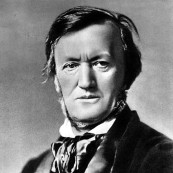











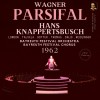


![Russian legends - Viktor Tretiakov [6 CD]](http://static.classicalm.com/repository/collection-cover/small/271-img1318800770253179.jpg)
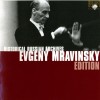

![Deutsche Grammophon Classic Gold [CD 1 of 3]](http://static.classicalm.com/repository/collection-cover/small/1314-img1361380277394437.jpg)
![Great Voices Of The Century - Sopranos, The Greatest Arias [CD3 of 4]](http://static.classicalm.com/repository/collection-cover/small/1403-img1403278854225982.jpg)
![Great Voices Of The Century - Sopranos, The Greatest Arias [CD4 of 4]](http://static.classicalm.com/repository/collection-cover/small/1404-img1403279266849057.jpg)


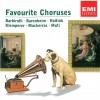
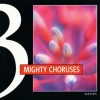
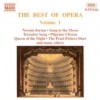
![The Top 100 Masterpieces of Classical Music 1685-1928 [CD9of10]](http://static.classicalm.com/repository/collection-cover/small/1361-img1372448419453391.jpg)
![The Top 100 Masterpieces of Classical Music 1685-1928 [CD6of10]](http://static.classicalm.com/repository/collection-cover/small/1358-img1372444971255802.jpg)
![The Top 100 Masterpieces of Classical Music 1685-1928 [CD8of10]](http://static.classicalm.com/repository/collection-cover/small/1360-img1372447516287674.jpg)
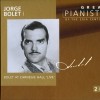
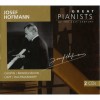
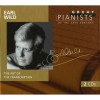

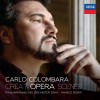
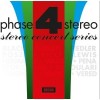
![Strauss conducts Strauss [DG] - Gluck, Weber, Wagner, Cornelius](http://static.classicalm.com/repository/disk-cover/small/4228-img1411909261533023.jpg)
![Maria Callas - The First Recital (1949) [Remastered 2014]](http://static.classicalm.com/repository/disk-cover/small/4999-img1427302642387621.jpg)

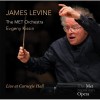
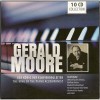
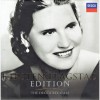
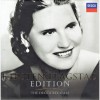
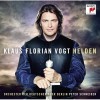
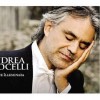
![The Liszt Project (Pierre-Laurent Aimard) [CD1of2]](http://static.classicalm.com/repository/disk-cover/small/3605-img1404825417256424.jpg)
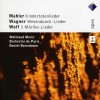
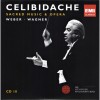

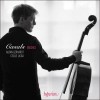
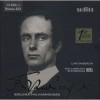
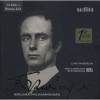
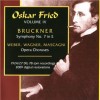
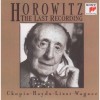
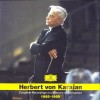
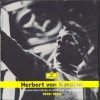

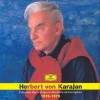
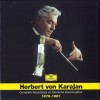
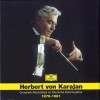
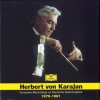
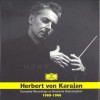
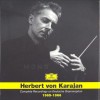
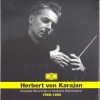
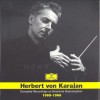
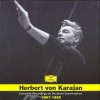
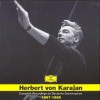
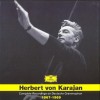
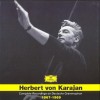
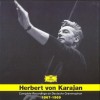
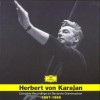
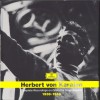
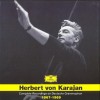
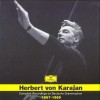
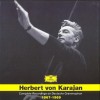
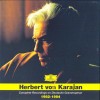
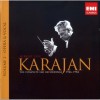
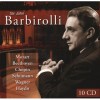

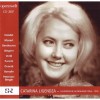
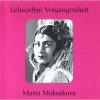
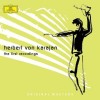
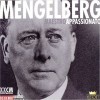
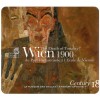
![Anthology of the Royal Concertgebouw Orchestra: Live the Radio Recordings 1960-1970 [CD6]](http://static.classicalm.com/repository/disk-cover/small/3443-img1395222424366205.jpg)
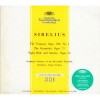
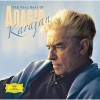



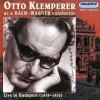
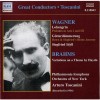
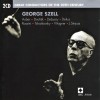
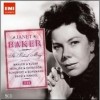

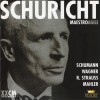
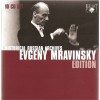
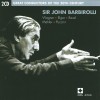
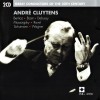
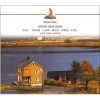




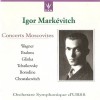
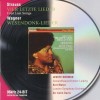
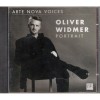

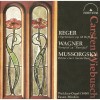
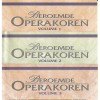
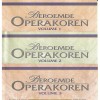
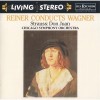

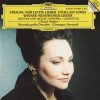
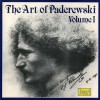
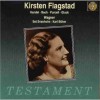
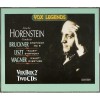
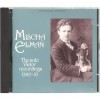
![Herbert von Karajan - Sternstunden der Musik [CD2of3]](http://static.classicalm.com/repository/disk-cover/small/3678-img1406715754823749.jpg)
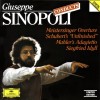

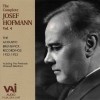

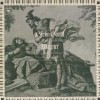


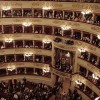

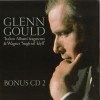
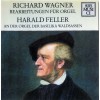
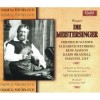
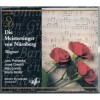
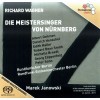
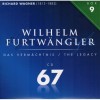
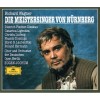
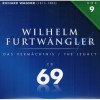
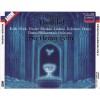
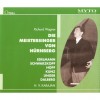
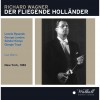
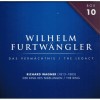
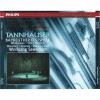
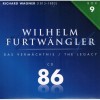

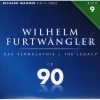
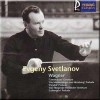

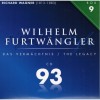
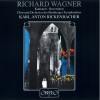
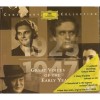
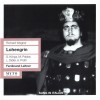

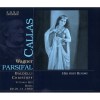
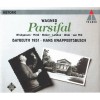
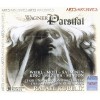
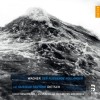
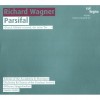
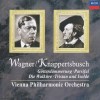
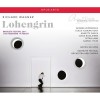
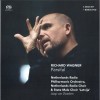
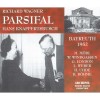

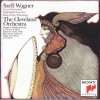
![Wagner - Parsifal [Lehman, Urmana, Pape - Valery Gergiev, 2009]](http://static.classicalm.com/repository/composition-cover/small/16660-img1381160957308651.jpg)
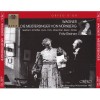
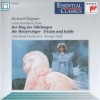
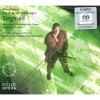
![Wagner - Excerpts from Tristan und Isolde, Lohengrin, Wesendonck-Lieder - Robert Wagner [3CDs]](http://static.classicalm.com/repository/composition-cover/small/17174-img1383061202529358.jpg)
